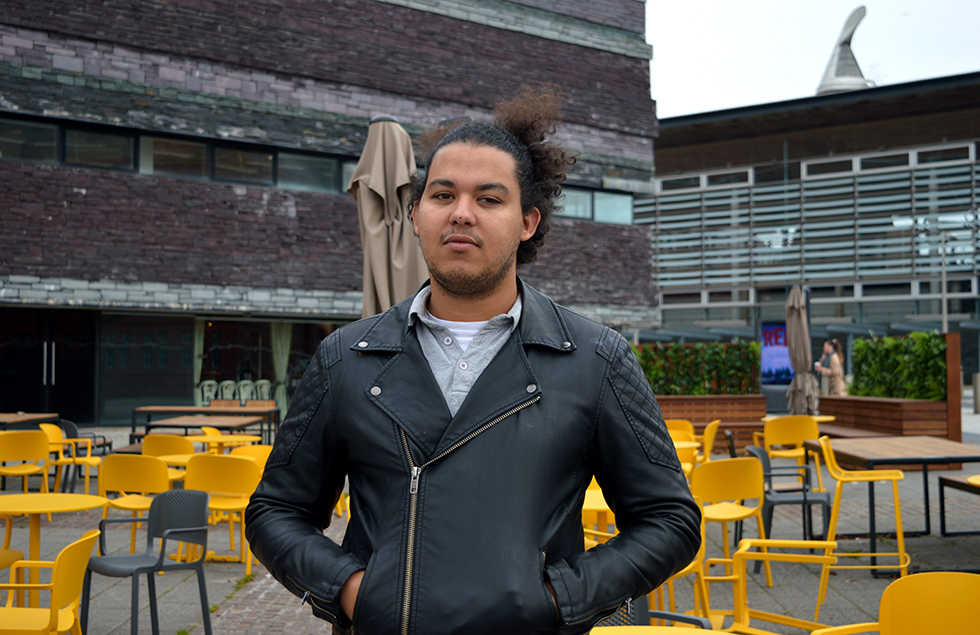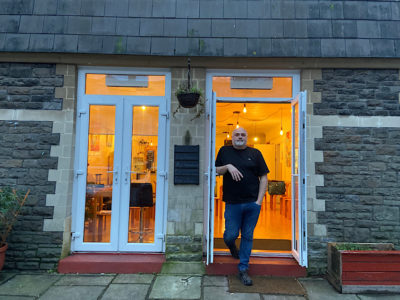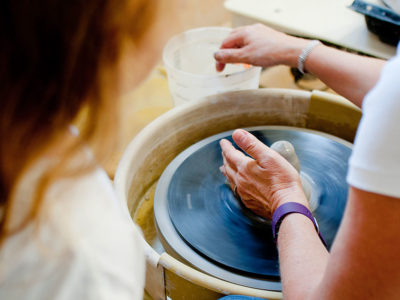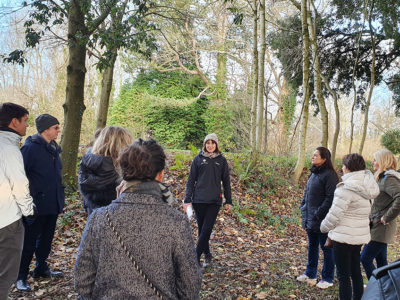Being Gay in Morocco – a testimonial
Abderrahim grew up in Agadir, in a Muslim family of five. At the time, he had no concept of the word queer nor the notion of gender fluidity.
Despite that, he always felt he was too feminine to be a boy – when he realised he liked boys, it seemed natural to him that he was a girl. Puberty hit, and with it came physical changes: he was a boy, a growing boy, and this confused everything.
His first encounter with homosexuality was on French TV. “It was a relief at first to learn that other people like me exist in the world,” he said. Even more mind blowing, some people in Morocco and Agadir were also gay.
Quickly though, Abderrahim realised things were not as “pink and flowery” as in Hollywood movies.
The first reality check was in high school, when a friend said that in their faith, a man living with another man would never go to heaven. Not only was being gay thought unacceptable in Islam, it was unlawful in Morocco.
Abderrahim said, “I had to change the way I talked, the way I walked, it was always a struggle.” Friends were telling him to watch what jeans he would wear, which areas he would go in – some invitations were ‘a set up to catch you’ and bring you to the authorities.
To this day, his family completely rejects his sexuality. If they still consider him as part of the family, they never bring up his sexuality. His mother still believes it is a phase, waiting for the time he will come back in the ranks and marry. His eldest brother does not talk to him anymore.
Through activism, dancing and writing, the queer artist and asylum seeker is slowly building his new life in Wales
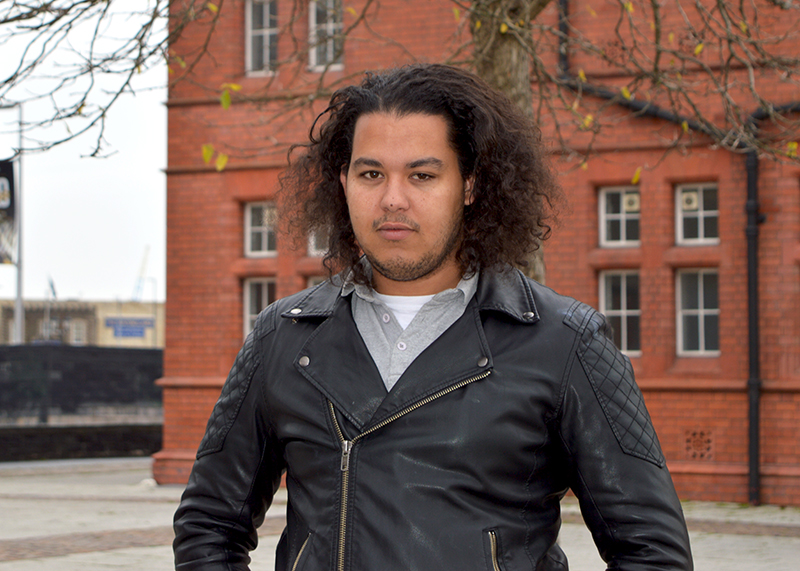
Abderrahim El Habachi, a gay Moroccan refugee, could tell you all about the advantages of art – it was, and still is, his saviour as he struggles with PTSD. The launch of the world’s largest study by King’s College and UCL on the impact of arts on physical and mental health would come as no surprise to him.
Fleeing Morocco because of his legally and religiously shunned sexuality, Abderrahim, 27, admits he suffers from strong PTSD. He grew up in Agadir but moved to Casablanca for work, where he tried to set up an LGBT group, Akaliyat. It did not go forward and, his details now accessible, he was confronted by officials who came banging on his doors. He had become a target.
“I had to move home five times,” he recalls. “The mental harassment was the worst.” From insults to depreciation, Aberrahim went through a lot.
His search for freedom first led him to seek asylum in the Netherlands in December 2016, where other friends and activist had found refuge. He was 24.
As he had travelled to England earlier in the year, his visa for Britain was still valid – so the Netherlands sent him there. Yet again, he was moved to Wales. Since then, Abderrahim struggled to find a place to call home. Now in Cathays, he says, “I cannot say I am settled; my asylum request has been rejected.” He is currently appealing for the third time.
Speak out!
Abderrahim first fought oppression, and the resulting PTSD, through activism. He is a committee member of Glitter Cymru, a Cardiff-based BAME LGBT+ organisation, and is an HIV positive activist.
He takes pride in being HIV positive and openly talks about it, even offering sessions with young HIV positive people who need to talk about this. He was a member of the Y+ Programme, a committee put in place by the Global Network of People Living with HIV (GNP+). Their aim was to increase the visibility and the representation of HIV positive youth in the world, and to develop a valid agenda for the cause.
Abderrahim insists, “The real culture shock when moving here was about public health and education!” He expected the country to be much more developed in its teaching of sexual health as a first-world country, and was stricken by how much the stigma and fears surrounding HIV in particular were still alive.
Getting involved in the community, especially Cardiff’s, helps Abderrahim to feel at home here. After all, Wales was never where he thought he would end up.
Writing as a catharsis
If activism strengthens him, Abderrahim undoubtedly found most comfort in the arts. In Morocco, it was a way to say things with a persona. “This way I could put the blame on the character,” he chuckles.
Now, it is a way for him to find peace. His principal art form is writing, and he always has a queer North African as main character. “Saying things differently can help resolve them,” he confides. “You can empty all your anger.”
Abderrahim takes part in the Freedom Project of the Welsh National Opera, which aims to tackle issues of justice and human rights through various forms of arts and panels, in collaboration with the Refugee Council.
He is currently working on Beyond the Rainbow, a play on the journey of two refugees in their search for freedom, their expectations and the reality of it. He believes this play, its story, can “affect” others positively.
“Saying things differently can help resolve them. You can empty all your anger.”
The Red dress
It was through dancing, however, that Abderrahim fully realised the freeing power of art. The first time he belly-danced publicly, he was taking part in a protest in support of 51 Egyptians imprisoned for waving an LGBT flag during a Mashrou Leïla concert, a popular Lebanese group whose main singer is openly gay.
“I suggested it as a joke,” he laughs.
But soon after, he was asked to dance again during a Glitter Cymru event. Shourouq, a friend, gifted him a red dress. “I was so shy I kept my jeans on,” he recalls. He bursts into laughter as he adds, “My excuse was that I didn’t shave!”
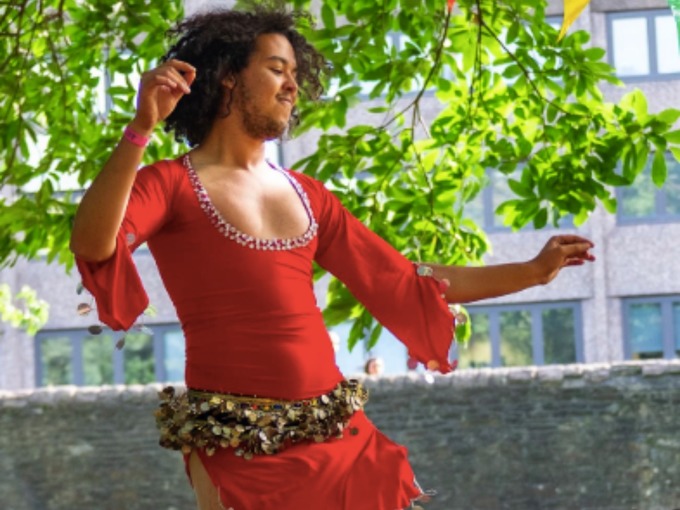
(Picture property of Kieran Cudlip)
Dancing with a purpose
A discussion with friends in Morocco about this timid dance soon changed everything.
“One of them told me, ‘Do you know how much I would have given to have that stage?’, and then it hit me,” says Abderrahim, his smile both amused and sad, “I was dancing for other people now.” It gave him purpose – a fun protest turned into a liberating movement.
So, he did it again, for a queer picnic in 2018, and again for the first BAME Pride in Cardiff, held during summer 2019. Even when family in Morocco found the picture on social networks, even when he was threatened to death to take it down, Abderrahim kept on dancing.
“And,” he adds with a cocky smile, “the picture is still on there!”
Being Gay in Morocco – a testimonial
Abderrahim grew up in Agadir, in a Muslim family of five. At the time, he had no concept of the word queer nor the notion of gender fluidity.
Despite that, he always felt he was too feminine to be a boy – when he realised he liked boys, it seemed natural to him that he was a girl. Puberty hit, and with it came physical changes: he was a boy, a growing boy, and this confused everything.
His first encounter with homosexuality was on French TV. “It was a relief at first to learn that other people like me exist in the world,” he said. Even more mind blowing, some people in Morocco and Agadir were also gay.
Quickly though, Abderrahim realised things were not as “pink and flowery” as in Hollywood movies.
The first reality check was in high school, when a friend said that in their faith, a man living with another man would never go to heaven. Not only was being gay thought unacceptable in Islam, it was unlawful in Morocco.
Abderrahim said, “I had to change the way I talked, the way I walked, it was always a struggle.” Friends were telling him to watch what jeans he would wear, which areas he would go in – some invitations were ‘a set up to catch you’ and bring you to the authorities.
To this day, his family completely rejects his sexuality. If they still consider him as part of the family, they never bring up his sexuality. His mother still believes it is a phase, waiting for the time he will come back in the ranks and marry. His eldest brother does not talk to him anymore.

